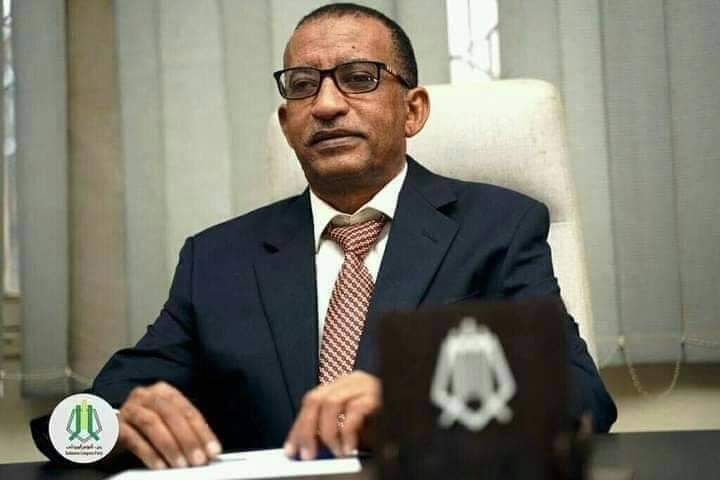Sudanese Congress Party chair: ‘Geneva SAF-RSF talks will fail unless parties adopt new approach’

Omar El Degeir, chair of the Sudanese Congress Party (Photo: Supplied)
Omar El Degeir, chair of the Sudanese Congress Party, has warned of the failure of the round of talks between the warring Sudan Armed Forces (SAF) and the Rapid Support Forces (RSF) which is scheduled to be held in Geneva, Switzerland, in the coming days, if the two parties adopt the same tactical approach as in previous negotiation forums.
El Degeir, whose party cooperated in forming the Civil Democratic Forces alliance (Tagaddum) alliance in October last year, expressed his regret for what he described as procrastination, because the two parties did not set a date to meet in Switzerland. “They announced their agreement without specifying the time and place” of the meeting – “while the war continues to destroy our land,” he stated in a post on X (formerly Twitter) yesterday.
“As is known, several rounds of negotiations were held – between representatives of the warring parties in the city of Jeddah, Saudi Arabia, with the aim of reaching a ceasefire agreement and addressing the humanitarian catastrophe. This was followed by a round held last month in Manama, Bahrain, to reach the same goal, but in both cities the hoped-for goal remained elusive.”
He expects that “the meeting in Switzerland or elsewhere, which can be considered a tactical approach, will not lead to tangible results on the ground. Both parties lack a serious will for peace, so, the Sudanese will again be in a state of fruitless waiting.”
‘Plan to divide Sudan’
Lt Gen Yasir El Atta, member of the Sovereignty Council and deputy commander of the SAF, renewed his accusation of unnamed external parties of drawing up a plan to divide Sudan into several regions, “while the government clings to the Jeddah platform as the only one for negotiations”.
El Atta said during an inspection visit to one of the army combat training centres in Omdurman, that “there are large plans to divide Sudan. The conspiracy has external dimensions known to everyone, but the people will thwart it”.
According to the official spokesperson for the army, El Atta said that “Sudan’s armed forces are nationalists and do not belong to a political entity, group, tribe, family, or entity. This camp now brings together all people of Sudan.”
The Minister of Culture and Information, Graham Abdelgadir, last week also confirmed the adherence of the de facto Sudanese government to the Jeddah negotiations platform under the auspices of Saudi Arabia and the USA.
The government considers it “the only platform for negotiating with the RSF,” stressing the government’s rejection of any other platform, he said in a statement on Friday. “Any attempt to pull the rug from the platform is an attempt to evade the commitments that were agreed upon in Jeddah.”
The Tagaddum alliance, set up to support talks to end the war and form a democratic government, recently visited the South Sudan capital of Juba, where they met with President Salva Kiir Mayardit, who has taken the lead to bring the warring parties together.
Dhieu Mathok, South Sudanese member of the Sudanese crisis mediation team, last Sunday expressed his concern to Radio Dabanga about the situation in Sudan.
“The divisions among the Sudanese have reached the point of refusing to sit with each other. This did not even happen in the SPLM war led by John Garang. They were fighting and when they met, they talked,” he said. “This behaviour must stop and everyone must sit down and talk in order to save Sudan.”











 and then
and then